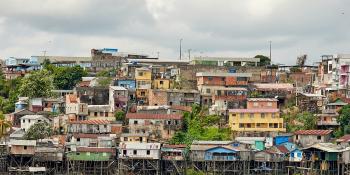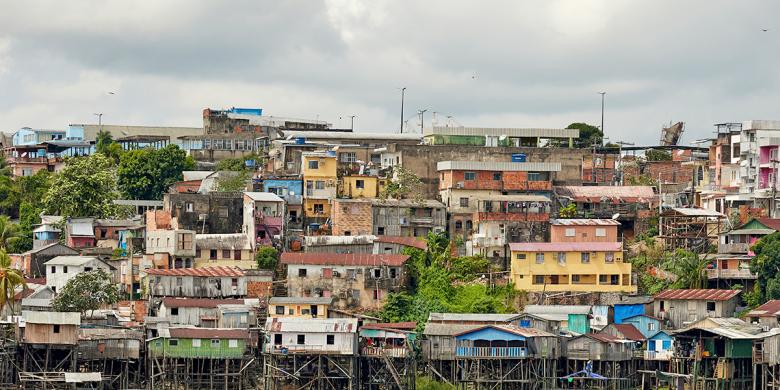
Adequate and affordable housing
COP28
Habitat for Humanity calls on global leaders at COP28 to prioritize adequate and affordable housing
Habitat for Humanity International is calling on delegates at the COP28 climate change conference to prioritize the housing needs of vulnerable populations, particularly those who are living in slums and informal settlements, by taking action that will meaningfully address the impact of climate change on safe, decent and affordable housing.
“Today we are faced with a global housing crisis that is made worse by increasingly extreme weather events and global warming”— Jonathan Reckford, chief executive officer of Habitat for Humanity International
“Today we are faced with a global housing crisis that is made worse by increasingly extreme weather events and global warming,” said Jonathan Reckford, chief executive officer of Habitat for Humanity International. “We know that those living in informal settlements contribute the least amount of carbon emissions but are often the most affected by climate change. We also know one way to improve education, health and employment outcomes for those living in informal settlements is to invest in safe and adequate housing. We must ensure that adaptation efforts are affordable and accessible so that all people can thrive in safe and decent homes.”
The 28th Conference of the Parties meeting, or COP28, is the latest in a series of United Nations climate change conferences. This year’s meeting will include the first global stocktake of the legally binding Paris Agreement on Climate Change. Of critical importance, the implementation of adaptation actions that prioritize vulnerable communities, which are detailed in the Paris Agreement, currently stands at less than 1% around the globe.
Habitat for Humanity, an official participant at COP28, released a list of policy priorities and recommendations that urges leaders gathering at the conference to recognize the economic and social benefits of integrating sustainable and resilient housing practices into their national adaptation plans, especially for those living in informal settlements and in areas of rapid urbanization.
There is urgent need to encourage the incremental adaptation of housing in informal settlements, using low-carbon materials in construction and ensuring that building codes encourage sustainable building practices including passive design and nature-based solutions that prevent overconsumption of natural resources. These solutions and others are highlighted in a new report: Climate Adaptation Through Housing: Examples of Effective Interventions in Informal Settlements.
Another new report developed by Habitat for Humanity’s Terwilliger Center for Innovation in Shelter — Emerging Opportunity: The Hidden Role of Sheltertech in Climate Tech Investing — analyzes the extent to which the sheltertech sector has been courted by climate tech and impact investors and examines potential avenues for overcoming investment barriers in the sheltertech space, and what can be done to attract more climate tech investors into this area. The sheltertech industry focuses on innovative and scalable products and services for low-income housing markets that have the potential to make climate impact.

Houses built on the south of Manaus, the capital of the Brazilian state of Amazonas, located on the banks of the Negro River. © Habitat for Humanity International/Carolina Guerrero.